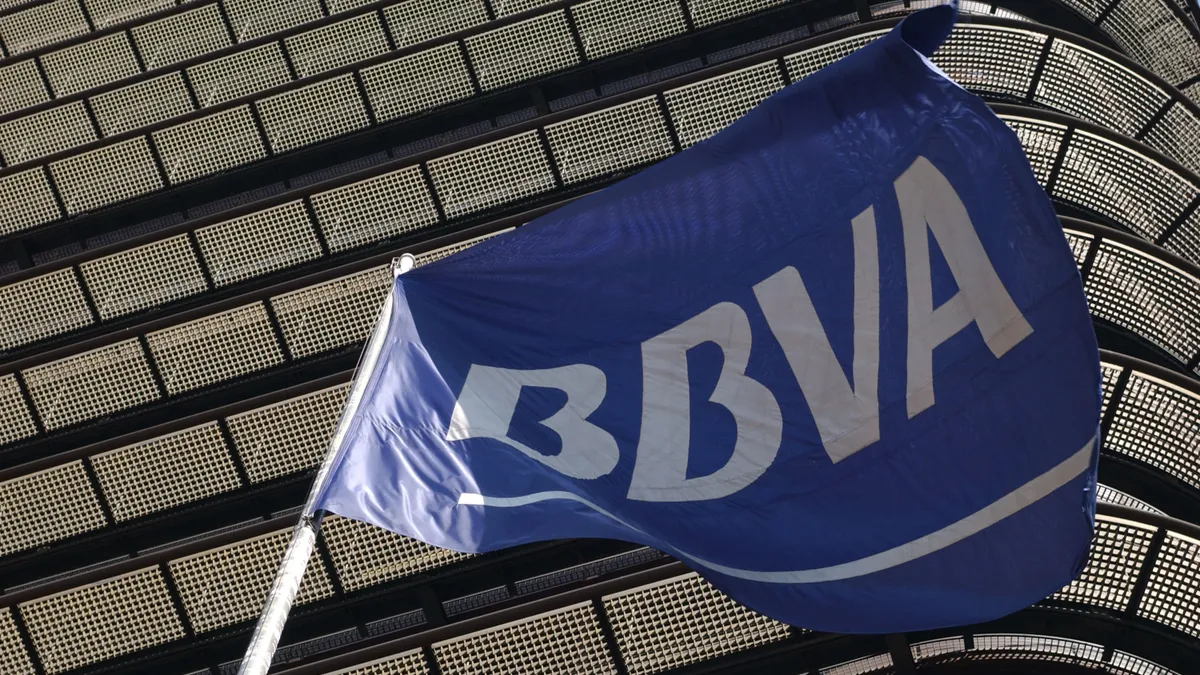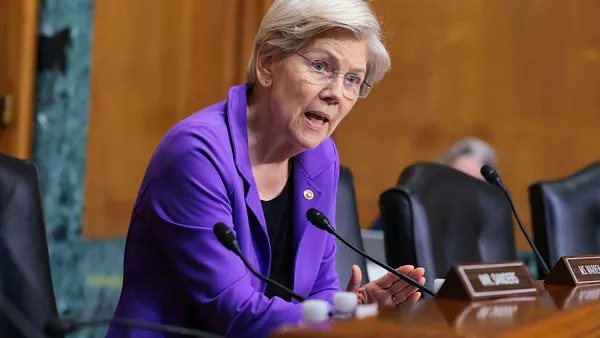Any notion that BBVA is simply shoring up its assets and retreating from the U.S. ignores a second move the Spanish bank made Monday in its home country.
On the same day Spain's second-largest bank agreed to offload its U.S. operations to PNC for $11.6 billion, BBVA also confirmed it is discussing a merger with another of the country's five biggest banks, Sabadell.
The banks have begun due diligence reviews and have appointed advisers, the Financial Times and Reuters reported. However, "no decision has been made in relation to the potential merger transaction and ... there is no certainty as to whether any such decision will be made or, if that is the case, as to the terms and conditions of a potential transaction," BBVA wrote in a stock exchange filing, according to Reuters.
The boards of both banks will decide next month on whether to proceed, the wire service reported, citing a source familiar with the matter.
Yet BBVA isn't even the only bank in Spain over the past week to launch simultaneous maneuvers to expand and contract. BBVA's larger rival, Santander, is acquiring Wirecard's technology platform, the German payment service provider's insolvency lawyer, Michael Jaffé, said Monday, according to Reuters.
With it, about 500 Wirecard employees will join Santander, the Spanish bank said. Santander may pay well over the 100 million euros ($120 million) Jaffé set as a minimum price for the assets, Bloomberg reported, citing anonymous sources.
However, the acquisition does not include Wirecard companies and the bank will not assume any legal liability connected to Wirecard and Wirecard Bank or its past actions, Santander said, according to Reuters. The deal is expected to be complete by the end of the year, pending regulatory approvals.
News of the acquisition comes days after Santander announced it was planning to cut 4,000 positions in Spain and close nearly one-third of its branches in the country.
In a sense, BBVA and Santander are both following regulator guidance. Pablo Hernández de Cos, the governor of Spain's central bank has asked banks to consolidate in response to the "low profitability of the banking business" and the "credit, market and operational risks" posed by the pandemic, the Financial Times reported.
"It is fundamental that institutions make deeper efficiency gains, reduce costs and use new technologies more intensively," he said last month, according to the publication. "The consolidation of the sector could be a useful tool to achieve this objective."
Consolidation may help Spain's banks become better capitalized. Offloading its U.S. assets will boost BBVA's tier one capital ratio by nearly 300 basis points.
And much as PNC's acquisition of BBVA USA's operations may, if past is predicate, incite consolidation — as the Pittsburgh-based lender is known to do — a BBVA-Sabadell merger would almost certainly prompt branch closures.
Spain has about 50 bank branches per 100,000 people — among the higher ratios in the European Union when compared with about 39 in Italy, 34 in France and three in Finland, the Financial Times reported.
The country also is no stranger to bank mergers. It had 55 banks before the 2007-08 financial crisis — a number that winnowed to 12 afterward, according to Reuters.
Sabadell said last month it was interested in merging with another Spanish bank and indicated it would be open to spinning off its British arm, TSB, which it bought for 1.7 billion pounds in 2015.
A BBVA-Sabadell merger would create an entity with 600 billion euros ($710.5 billion) in assets in Spain and a market value of 26.7 billion euros, Reuters calculated. Deducting BBVA's U.S. unit, the combined bank would have 860 billion euros in assets globally — still trailing Santander's 1.5 trillion.
But BBVA and Santander can expect a third player to arise. A proposed merger between CaixaBank and Bankia — which each separately rank among Spain's top five banks in assets — is expected to be complete in the first quarter of 2021, pending board and regulator approval. That tie-up would create Spain's biggest bank domestically. Santander and BBVA, richer by global assets, have larger presences outside Spain.













